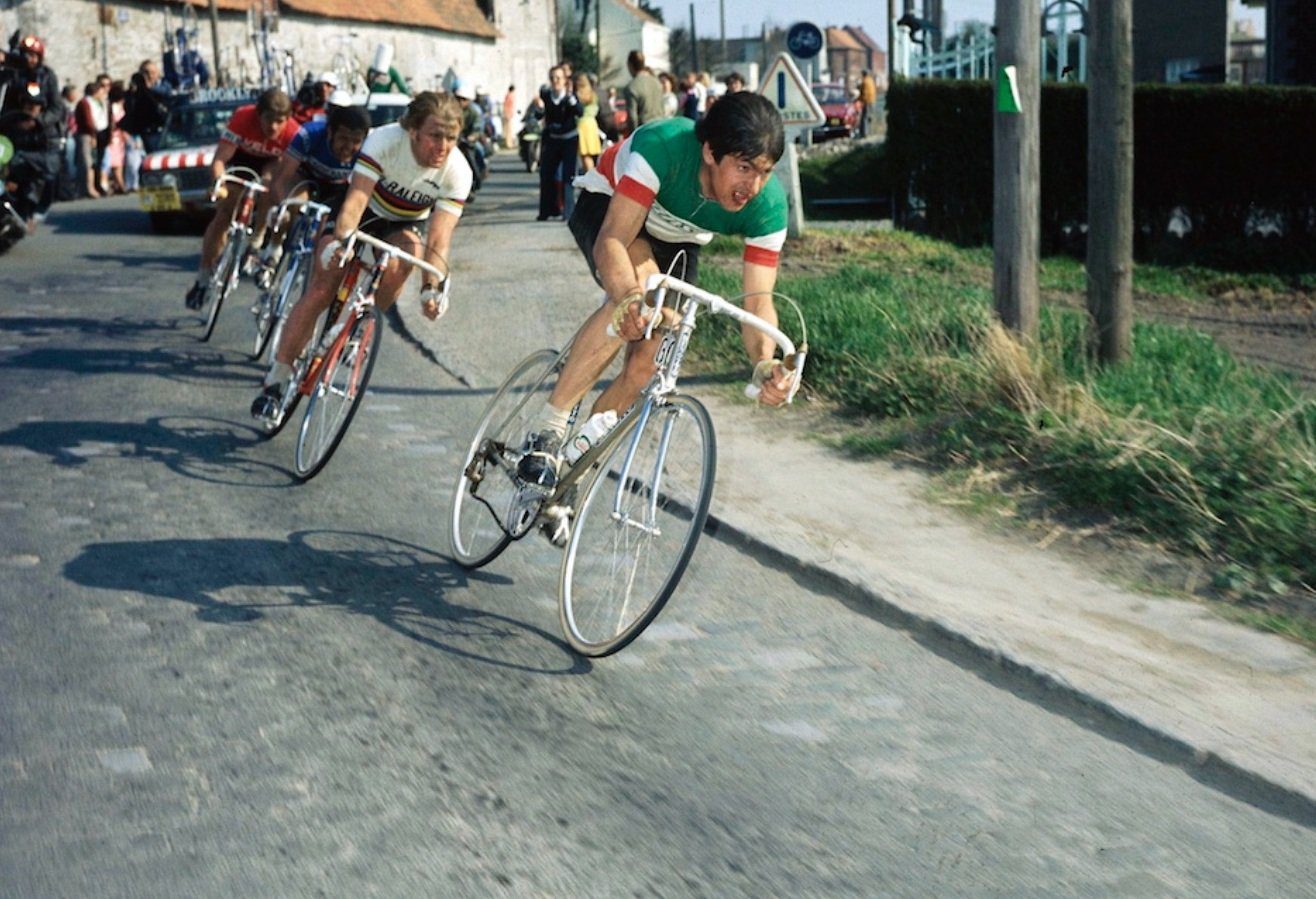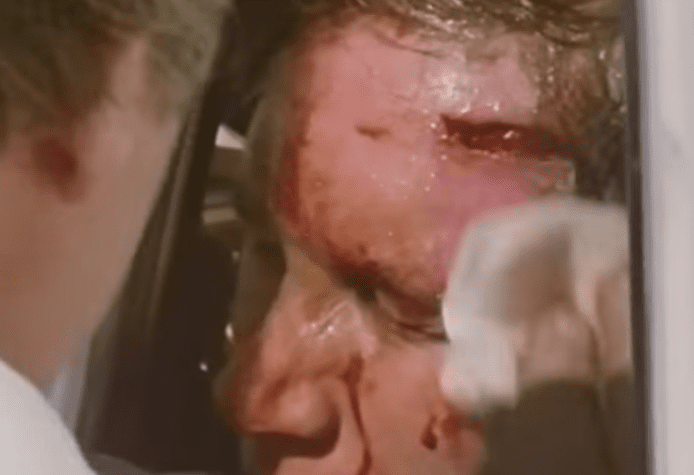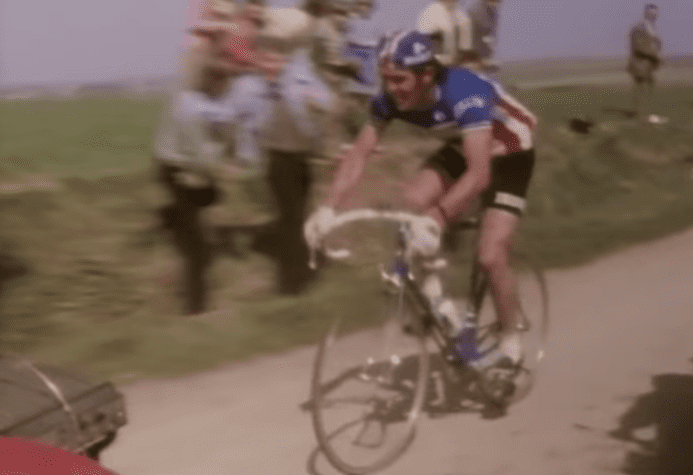A celebration of A Sunday In Hell
Jørgen Leth’s gritty Paris-Roubaix masterpiece is 44-years-old

This Sunday would have been the 118th Paris-Roubaix. Second only to the Tour de France in terms of recognition, l’Enfer du Nord, the Hell of the North, is a merciless contest of punishing cobbles only for the hardest of riders. Danish filmmaker Jørgen Leth’s famous documentary of the 1976 edition, A Sunday In Hell (En Forårsdag i Helvede), is 44-years-old and available in all its glory on YouTube.
Leth’s creation has become part of the legend of the great, grueling race. William Fotheringham, a celebrated cycling journalist, even wrote a book about the film called “Sunday In Hell”.
Leth, a former amateur bike racer, utilizes shots from fixed cameras, motorcycle cameras and those in helicopters—providing what Rotten Tomatoes calls an “Olympian eye”—edited together brilliantly to tell the story of the race. Slow motion reveals the tremendous pummeling the riders take from the cobbles. David Saunders’ incisive English narration is by turns understated and lionizing. The Royal Danish Opera augments Gunner Møller Pedersen’s music, most notably with the lyrics “Paris-Roubaix, L’enfer du nord” sounding like angels wearing hairnet helmets at the pearly gates.
The film doesn’t shy away from the carnage.

A Sunday In Hell is also a mini-study of three-time winner Eddy Merckx, who may no longer be at the height of his power—although he won his seventh and final Milan-San Remo the previous month—but is still the patron of the peloton, taking strong turns on the front of the pack in the quest for his fourth title. Three years earlier Leth had filmed the 1973 Giro d’Italia for another documentary called “Stars and Watercarriers”, which told the tale of Dane Ole Ritter racing to seventh while Merckx ran away with the pink jersey. Merckx’s main Paris-Roubaix rivals are reigning titlist Roger de Vlaeminck and soon-to-be world champion Freddy Maertens, all three clad in iconic kits. All three are also Belgian; in 1976 the race is near the end of a nine-edition Belgian winning streak. However, 1976’s winner isn’t any of these three, but compatriot Marc Demeyer, who died five years later at age 31 from a heart attack which was thought by some to be the result of using performance enhancing drugs.

All facets of the Gallic personality are on display as Leth captures fans waiting for the race by the side of the road and interviews them in pubs.
As with the fine National Film Board piece, 60 Cycles, part of the fun is spotting the old school gear, like wool jerseys, casquettes, steel bikes with Campy Super Record, and support cars like the Citroen DS23 and Peugeot 604.

